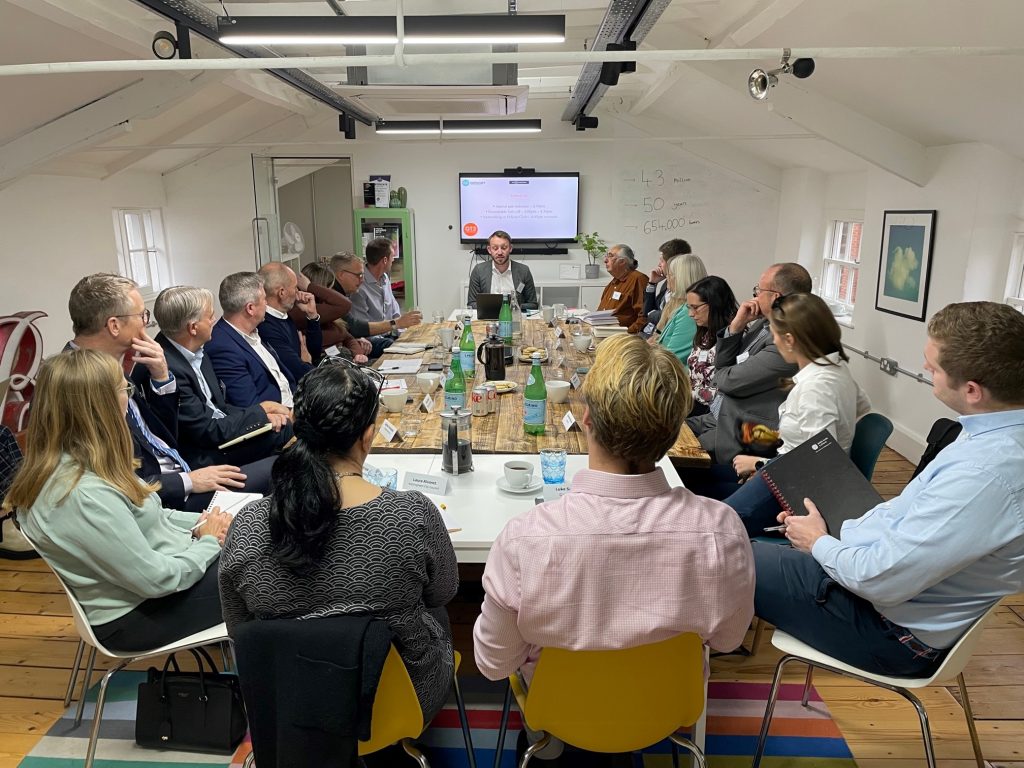A PANEL of architecture, planning and property experts is calling for more strategic thinking on local residential regeneration.
Professionals gathered recently for a roundtable, hosted by GT3 Architects, to discuss how the UK can achieve its housing goals of 300,000 homes a year by mid-2020s and the challenges they face.
Points of discussion ranged from why planning is causing barriers to regeneration, how city centres can be pioneers in pedestrianised residential housing to reduce carbon emissions, the challenges of retrofitting and how we can future proof communities.
Marta Subh Lopez, associate director at GT3 Architects, said: “The panel was a great opportunity to bring together a range of experts who share the goal of wanting to see positive residential regeneration in our cities and towns.
“A common theme throughout our discussions were the challenges facing masterplanning, one of which is the current planning regulations. Depending on the area, time scales to get permissions for a project vary heavily, and by the time we have the green light, many factors including costs, have changed. For us to work towards these housing goals, there must be some changes or streamlining of this process.
“It was clear from the engaging conversations had that we all agree a vision-led strategy is the way forward, which takes into consideration both local authority needs and Government policy. This will only happen, however, if a national approach to regeneration is taken first.”
Oscar Heap, surveyor at JLL, commented on the need to take party politics out of housebuilding. He said: “Building regulations are constantly changing, as are housing ministers, which causes a lot of disruption to future planning. It may be time to introduce an independent regulator which can sign-off schemes and work towards a long-term plan which satisfies the local authority and works towards wider housing goals.”
The panel in attendance also explored the issues of infrastructure and how this affects placemaking.
James MacPherson, director of transport and planning at SLR Consultants, said: “Despite the fact the Government are not keen on the 15-minute neighbourhood concept, it’s a great starting point to discuss sustainable urbanism and what we could achieve. If we can reduce the number of car trips people need to take by providing education, doctors, work opportunities within walking distance, as well as community spaces, this would allow for placemaking for transport.
“Generational changes are also a factor in placemaking, as there’s a change of attitude to car ownership. People are becoming more eco-conscious and work from home has changed behaviours to commuting. We need to follow in the footsteps of Somerset, who have placed road building as a last resort in its framework, and is inviting developers to invest in the right mix of schemes.”
Despite the challenges discussed, an optimistic tone was maintained throughout the event due to the shared recognition that these honest conversations will be the catalyst for change.
The panel was hosted by GT3 Architects, chaired by Tom Snee (Cartwright Communications) and featured Nick Murphy (Tumtun), James Macpherson (SLR Consulting), Martin Miller (Tor&Co), Andrew Davison (Queensberry Real Estate), Oscar Heap (JLL), Luke Saywell (Gascoines), Paul Seddon and Laura Alverez (Nottingham City Council), Elaine Penhaul (Lemon & Lime interiors), Craig Waldron (CPW), Tamsin Cottle (Green 4 Planning), James Coningsby (Nelsons), Carl Bairstow (Efficiency North), James Rigby (Knights), Jenny Keen (Marrons), Charlotte Whincup (Naismiths) and Denise Knipe (Aspbury Planning).
GT3 Architects is a full-service architect firm which adopts a ‘people first’ approach, ensuring all spaces created deliver real value to the people who use them long into the future.
For further information on GT3’s residential work, visit www.gt3architects.com or follow @GT3Architects on LinkedIn.


